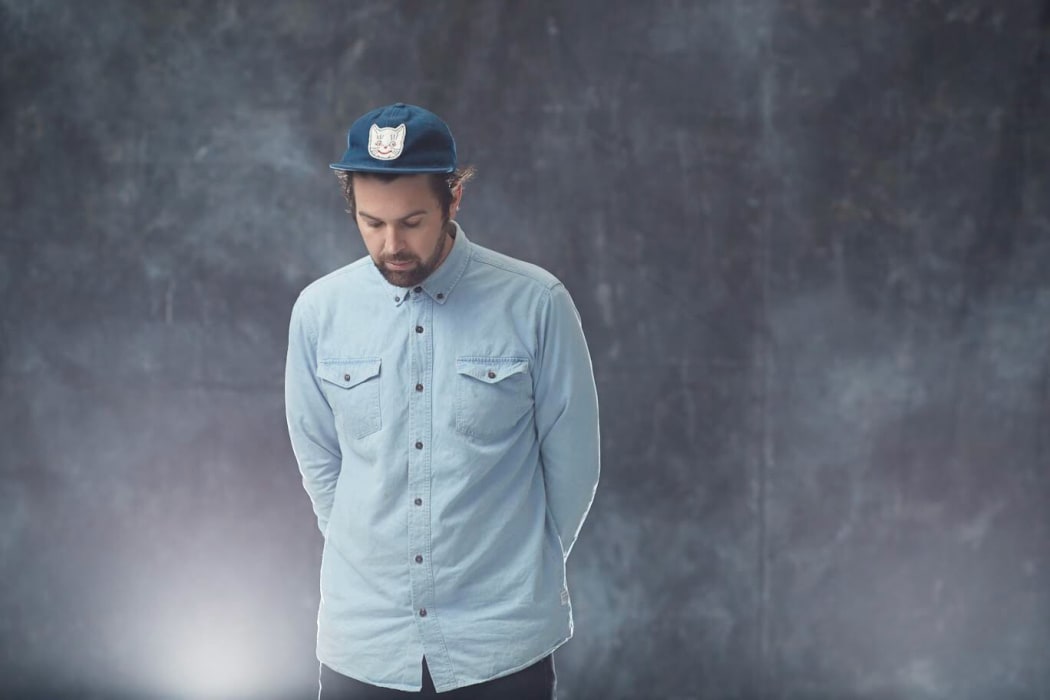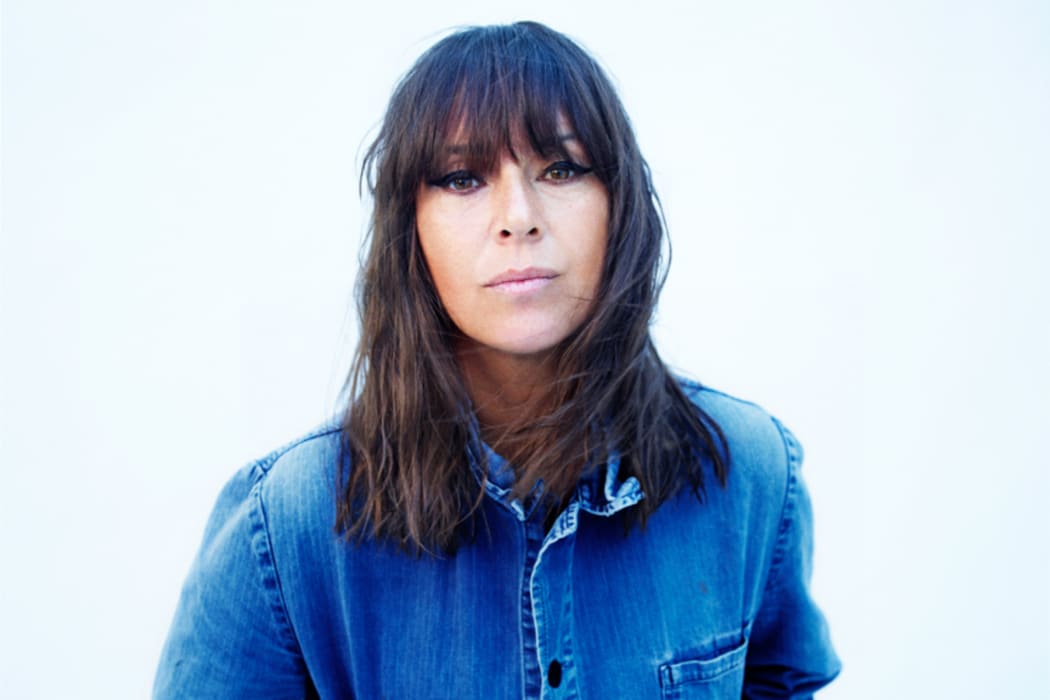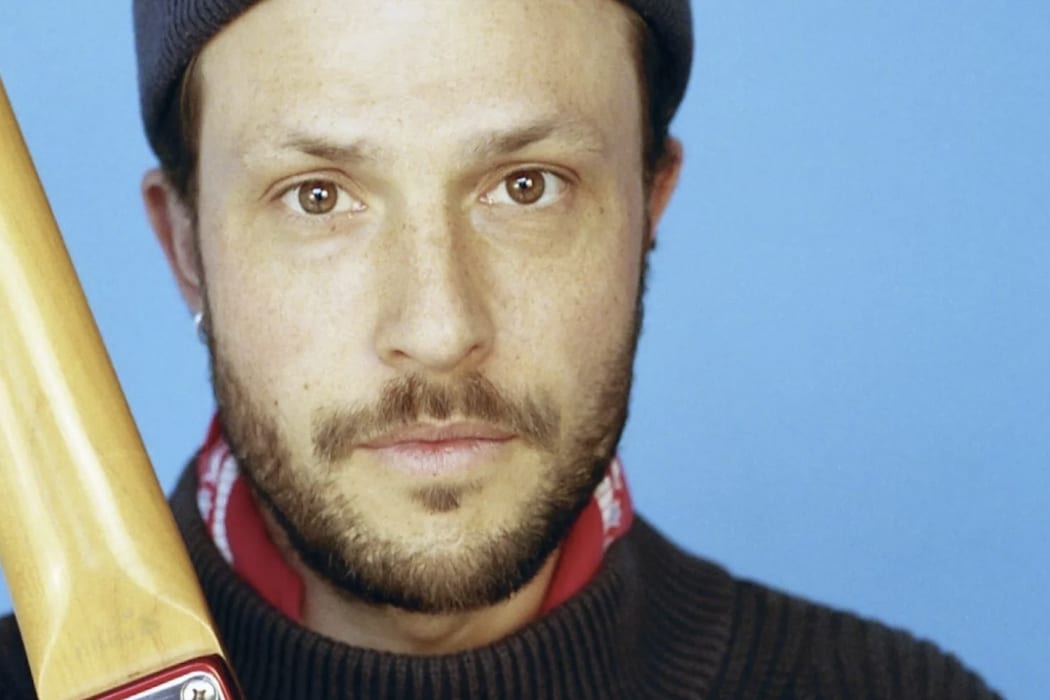Tony Stamp begins the year with local dance-fusion courtesy of drummer and producer Julien Dyne, a third album of covers from the eccentric Chan Marshall AKA Cat Power, and a stripped back celebration of fatherhood by British singer Orlando Weeks.
Modes by Julien Dyne

Photo: supplied
There’s a record label run out of London called Soundway, which got its start reissuing seventies sounds from Ghana like Afrobeat, before expanding the catalogue to include Asian, Latin and Caribbean records, and eventually signing new like-minded artists from around the world - ones who share label boss Miles Cleret’s interest in groove. It’s testament to his good taste that the label is currently home to three acts from Aotearoa - Waiheke party-starters Flamingo Pier, Wellington genre-fusionist Lord Echo, and from Auckland, Julien Dyne, a fixture in the music scene since 2002.
Dyne’s last album Teal drew acclaim from UK outlets like BBC6 Music and Late Night Tales. It operated in much the same ballpark as this one - house music with elements of jazz, funk and afro-soul. There’s an insistent 4/4 groove that runs through the entire album, never changing its tempo that much.
Started during the 2020 lockdown, Modes was assembled with help from a large number of collaborators. Dyne poetically describes that process as “little parcels of sonic information which were then shaped and sculpted afterwards, yielding fresh results.”
There are guest vocalists on almost every track, and as per Dyne’s extensive background, he’s cast the net far and wide. ‘Grl’ features LEON from the band Ghostwave, and three tracks include Semisi Ma’i’ai from the up and coming Marlin’s Dreaming.
Also featured are some very well established names like Joe Dukie from Fat Freddy's Drop, and one that surprised me somewhat - the constantly genre-hopping Troy Kingi, who appears on the song ‘Water’.
This is an album that threads all sorts of genres onto its dance music spine. Aside from vocalists there’s a very long list of players, with the lineup changing on each track. A few of those names are local virtuoso Chip Matthews on bass, Jeremy Toy of the Leonard Simpson Duo on guitar, and jazz legend Jonathan Crayford on keys. It’s the kind of album where three separate people contributed vibraphone, among them Cory Champion from Borrowed CS, and features Phoenix Foundation’s Chris O’Connor playing harp.
Dyne got his start in the band Open Souls, and aside from being a producer and DJ, is best known as a drummer. Key to the album is the way many of these rhythms are played live on a kit, alongside some programmed stuff. The drums might be the instrument with the most character, which is fitting - Dyne’s tone and playing are impeccable.
Aside from dance music, there’s a strong dub throughline that speaks to its mode of creation - elements like melody appear in brief snatches, laden with echo, like the hornline that enters on the Che Fu-featuring ‘Scoop’.
Elsewhere on ‘Bison’ Toby Laing from Phoenix Foundation adds dreamy vocals to the mix, with Dyne’s dubbed out hi hat joining a drum machine and a specific kind of omnipresent keyboard tinkle. That specific keyboard boogie appears on almost all these tracks, familiar to anyone with an interest in dance music, particularly the kind Aotearoa has embraced.
The most impressive thing about Modes, aside from Julien Dyne’s impeccable drumming, is the way he incorporates all those genres at the same time. To my ears this rhythm and these embellishments clearly evoke the New Zealand summer, and are easily imagined coming out of some outdoor festival speakers, which feels somewhat bittersweet in light of recent COVID-related news. But if you want to bring that feeling to your lounge or backyard, this is the album to do it.
Covers by Cat Power

Chan Marshall AKA Cat Power Photo: supplied
Chan Marshall has alway been an elusive figure. In the past her live shows were unpredictable - she might lip sync while dancing in the crowd, or crawl under a piano and scream at the audience to leave. In 2015 she gave birth but refused to name the father. And I don’t think she should have to. It’s just an example of her keeping the press, and even her fans, at a distance.
In 2006 she quit drinking after suffering from alcoholism. And in 2012 was diagnosed with hereditary angioedema, which caused her to struggle with breathing, and sent her to hospital at least eight times. The news felt extra personal because Marshall was so private.
She’s just released her third album of cover songs, appropriately called Covers. And it feels weirdly apt that she can hide behind other people’s writing, but also make their songs feel so personal to her.
The original version of ‘Bad Religion’ by RnB futurist Frank Ocean features organ, strings and handclaps. Marshall makes it her own with a stop/ start rhythm, simple guitar and her unique vocal, sounding as it always does somewhere between bored and desperate - miles away from Ocean’s, which came across like Prince at his most sombre.
Likewise on her version of Nick Cave and the Bad Seeds’ ‘I Had a Dream Joe’, she does away with the feverish whirling dervish of the original and subs in another distinctive rhythm, which as much as anything marks this as uniquely hers.
Like a lot of these songs, it’s a fascinating addition of a hook where there wasn’t one. Marshall has absorbed the essence of these tunes, but seems incapable of replicating them. The exception might be her version of Nico’s ‘These Days’, which is so burned into the public consciousness it’s impossible to escape. There are a few tweaks to the melody, but otherwise it’s pretty faithful.
My favourite thing here is Marshall's version of ‘Here Comes A Regular’ by The Replacements. It’s another good example of her smuggling in a hook - replacing the original’s strummed acoustic with a piano melody. Paired with a distinctive chorus effect on her voice, the song feels brand new; sentimental, but in a different way to the original.
The choices here are wide ranging, with classics from The Pogues, Iggy Pop, and Billie Holiday alongside newer artists like Lana Del Rey, and the biggest curveball for me - actor Ryan Gosling’s band Dead Man’s Bones. She also includes a new version of one of her own songs, which might be a clue as to Chan Marshall’s state of mind these days. ‘Hate’ from the Cat Power album The Greatest, here becomes ‘Unhate’, and it’s altogether more defiant and propulsive than the original; up against a wall, but far from defeated.
Hop Up by Orlando Weeks

Orlando Weeks Photo: supplied
The Maccabees were a group of Jewish warriors who were knocking around a few hundred years BC. Thousands of years later the name was picked at random out of a bible by four lads in London, and so the UK outfit The Maccabees were born. They ran from 2004 to 2017, on Fiction Records, home to the likes of The Cure. But they always felt like an imitation of superior acts to me. I never paid too much attention. This year sees the second solo release by the band’s singer, and it’s a singular, rather eccentric collection of songs that manages to sound more unique than anything the band ever did.
The artist’s name is Orlando Weeks, and I first heard this album Hop Up free of any context. I was taken straight away with the sound of it - a largely electronic backdrop, tweaked to be as silky as possible, with Weeks’ voice pushed right to the front of the mix. It’s interesting to go back to his rock band and hear him seemingly straining to match the energy of something like Franz Ferdinand, but here it’s completely different, like he’s relaxed into his own peculiarities. Basically he’s not worried about sounding ‘cool’.
On tracks like ‘Look Who’s Talking Now’ Weeks employs a pure vocal tone during the verse, then something much cuter during the chorus, in one of many moments here that remind me of The Beta Band, or even Hot Chip.
I’m pretty sure that title is alluding to the 1993 movie featuring John Travolta and Kirstie Alley, the third in a trilogy where the audience is privy to their baby’s thoughts. It’s one of many names alluding to Weeks’ fatherhood, and I think informs the overall aesthetic, as if he wanted his infant son to be able to enjoy these songs. On tracks like ‘Make You Happy’ it sounds like he’s addressing him directly.
There’s an almost devotional feel to that one, which might be the most serious thing on the album. Hop Up was conceived as a response to Weeks’ first album, 2020’s A Quickening, which documented his anxieties leading up to his son’s birth. A year later he wanted to show the flip side: what he calls ‘a lightness or buoyancy’. He said he wanted ‘that cloud nine feeling’ in every song. That mostly comes through in the choruses. A lot of these tracks chart something almost solemn in their verse, then blossom into a more joyous feeling.
There are plenty of nice touches around the margins of these simple tunes, like the way tom drums in ‘Big Skies, Silly Faces’ add some rhythm in between the notes. Things like percussion and piano are peppered in sparsely, an attention to detail that reminds me of some of Peter Gabriel’s work, or David Byrne’s collaborations with Brian Eno.
It’s also refreshing to hear music that aims to sound nice. Weeks has spoken about feeling pressured to tackle angsty material in his band, and letting all that go for this album. And it shows.

